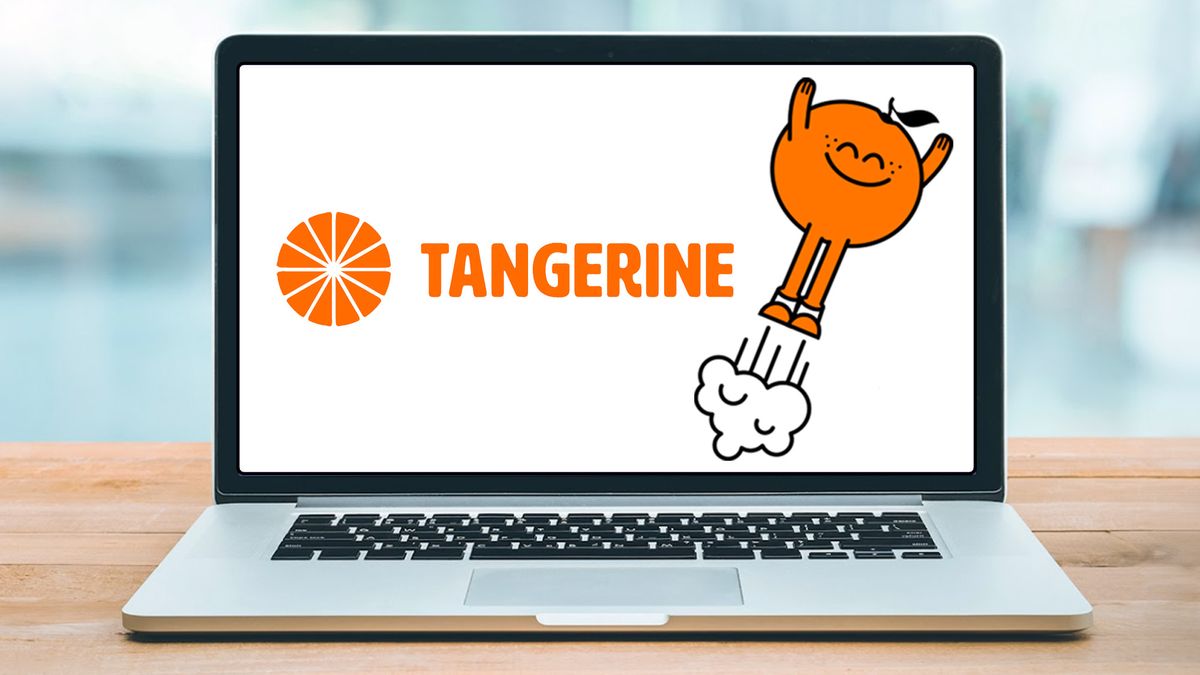
Trump threatens 25 percent ‘and higher’ tariff on chips.
Alongside Trump’s upcoming 25 percent auto tariffs, chips will see tariffs as well. In response to a reporter’s question about tariffs on pharma and chips (thanks, C-SPAN):
It’ll be 25% and higher, and it’ll go very substantially higher over the course of a year, but we want to give them time to come in because, as you know, when they come into the United States and they have their plant or factory here, there is no tariff. So we want to give them a little bit of a chance.

Framework says its laptops shouldn’t get stung by Trump tariffs but modules might cost more.
CEO Nirav Patel tells The Verge:
“Because we manufacture Framework Laptops and Mainboards in Taiwan, we have limited impact from the additional recently introduced tariffs. Some of our modules are manufactured in China, so we are taking this into account for future module pricing for US customers in the Framework Marketplace as we also continue to diversify our supply base.”

Acer is the first to raise laptop prices because of Trump


Photo by Amelia Holowaty Krales / The Verge
Acer CEO and chairman Jason Chen says your laptop will cost an extra 10 percent in the United States next month — and that his rivals might attempt price gouging if they think you’ll pay even more.
“We think 10pc probably will be the default price increase because of the import tax. It’s very straightforward,” he told The Telegraph, referring to President Trump’s 10 percent tariff on incoming goods from China. While big tech companies have generally been quiet on how they’ll respond to Trump tariffs, Acer says it just made the decision to increase prices last week, and it’ll take effect a few weeks from now.

Small businesses are already feeling Trump’s tariffs


Image: The Verge, Getty Images
President Donald Trump’s tariffs on China, Canada, and Mexico are presented by the president and his boosters as a boon to American businesses. If products from China are more expensive, the argument goes, then people will instead buy from counterparts based in the US.
But for small businesses manufacturing in the US, the tariffs are already causing their costs to go up — which, in turn, will force them to raise prices for consumers.

More Trump tariffs.
The president signed an order on Monday imposing 25 percent tariffs on imports of steel and aluminum to the US, CNN reports. The president had said on Sunday that he planned to announce the tariffs.

Big Tech is still silent on Trump’s tariffs


Image: The Verge, Getty Images
President Donald Trump’s 10 percent tariff on goods imported from China has been in effect for nearly a week. Ahead of the tariff going into effect, I wrote that “Big Tech has been silent on Trump’s tariffs” — almost no one in the industry had a public reaction or said how they would respond. A week later, that hasn’t really changed.
Myself and my colleagues have contacted a wide range of tech companies multiple times since the tariffs on China (and the now-paused tariffs on Canada and Mexico) were announced at the beginning of the month. Here’s what we’ve heard back – or haven’t heard:

Trump suspends order that created delivery chaos


Image: Cath Virginia / The Verge, Getty Images
President Donald Trump has paused the removal of the de minimis exemption on goods from China, temporarily putting an end to the confusion and high fees that have plagued both customers and businesses over the past few days. The de minimis exemption allows packages valued at less than $800 to enter the country duty free, but the exemption had been removed as part of Trump’s tariffs against China that went into effect this week.
The pause is only temporary. It was issued this morning through an executive order, which says that the de minimis exemption will be removed again when the Secretary of Commerce notifies the administration that “adequate systems are in place to fully and expediently process and collect tariff revenue.”

Donald Trump’s tariffs, explained


Image: Cath Virginia / The Verge, Getty Images

Shipping companies warn of delays and new charges from Trump’s China tariffs
In the two days since President Trump enacted new tariffs on goods from China, none of the major US shipping companies and couriers have yet announced detailed policies on new fees, though some have warned of possible delays and disruption. Despite that, both senders and recipients are already reporting being asked to pay import taxes and handling charges.
Trump introduced a ten percent tariff on goods imported from China on Tuesday, but the bigger change is the removal of the ‘de minimis’ exemption, which previously allowed shipments valued below $800 to avoid all import taxes and duties. The change means that previously duty-free shipments now incur the new ten percent tariff, all prior import taxes, and potentially additional fees charged by the shipping company for the inconvenience. With 1.6 billion shipments into the US under de minimis in 2024, though not all from China, that’s a lot of parcels that now require additional inspections, handling, and paperwork.

Your packages from China are about to get more expensive.
Donald Trump suspended a 100-year-old law this week that companies shipping online orders directly from China depended on. The de minimis exemption was used as a loophole by Temu, Shein, Amazon, and countless drop shipping operations. Check out my explainer below.

China tariffs may already be hiking up import fees


Image: Cath Virginia / The Verge, Getty Images
US consumers may already be seeing additional fees on shipments from China after President Donald Trump’s tariff on Chinese goods took effect on Tuesday.
Clint Reid, the founder and CEO of a company that offers software to help with cross-border commerce, posted screenshots on X showing additional charges added to a shipment from DHL:

Qwertykeys halts keyboard shipments to US over tariff costs and confusion


Image: Cath Virginia / The Verge, Getty Images
The keyboard company Qwertykeys has temporaily halted all shipments to the United States in response to President Trump’s tariffs on Chinese goods going into effect. The company says it’s working on ways to mitigate shipping costs and that the tariffs have made it so that “all keyboards from China to the U.S. are now subject to 45% tariffs at full value.”
“We are closely watching the progress of the situation and really hope that there is something else we can do other than bumping the price up,” the company wrote in a comment on Reddit.

USPS backtracks, will accept parcels from China after all


Photo by Nicholas Kamm / AFP via Getty Images
The US Postal Service has reversed yesterday’s surprise decision to stop accepting inbound parcels from China and Hong Kong. It will continue to accept international shipments from the two countries, though it warns of “disruption” to deliveries.
USPS previously announced that it was temporarily halting all packages shipped from China and Hong Kong. The decision came in the wake of President Donald Trump’s executive order revoking the de minimis exemption for shipments from China. It means that parcels valued below $800 are now eligible for US import duties and import taxes, including the new 10 percent tariff applied to all goods from China.

Your packages are about to get slower and more expensive


Photo by Bruce Bennett / Getty Images
The United States Postal Service has warned of “disruption to package delivery” from China and Hong Kong, after briefly suspending all inbound package shipments from the two countries. The suspension was announced yesterday but has already been rescinded, and USPS says it is “accepting all” parcels shipped from China again.
The confusion comes after President Trump used an executive order imposing a 10 percent tariff on Chinese goods to also close a loophole called the de minimis exception, which allowed packages valued below $800 to enter the US duty free. It’s how e-commerce outfits including Shein and Temu have been able to offer goods to US buyers at such low prices. It is also widely exploited by the likes of Amazon and by merchants on Etsy and eBay.

China opens Google antitrust probe in retaliation to tariffs


China has launched an antitrust investigation into Google as part of a salvo of responses to US tariff increases, including its own retaliatory tariffs and export controls. China’s State Administration for Market Regulation announced the Google probe on Tuesday over suspicions the US search giant has violated Chinese antimonopoly laws, according to a machine translation of the statement.
Google’s search and internet services have been blocked in China since 2010, but the antitrust investigation may interfere with its other dealings with Chinese companies. Details about the probe are slim, but according to the Financial Times it relates to the dominance of Android and potential harms caused to Chinese phone manufacturers including Oppo and Xiaomi. The probe was announced within minutes of President Trump’s 10 percent tariffs on Chinese goods going into effect, and joins a similar antitrust investigation into Nvidia launched in December 2024, with a probe into Intel also reportedly under consideration.

Shein and Temu depend on a 100-year-old tariff loophole that Trump wants to close
President Donald Trump’s sweeping tariff threats have been touch and go. As it stands currently, the 25 percent tax on goods from Mexico and Canada is on ice for a month, but a 10 percent tariff on Chinese goods is set to take effect on Tuesday, via an executive order of questionable legality.
Nestled within the order is a brief but important provision that could change how Americans shop online: the closing of a little-known loophole called the de minimis exception.

Trump agrees to a one-month pause on Mexico, Canada tariffs


Image: Cath Virginia / The Verge, Getty Images
On Monday morning, Mexican President Claudia Sheinbaum and US President Donald Trump announced the US is pausing tariffs against Mexico for one month, as previously reported by Bloomberg. In the afternoon, a similar deal was announced by Trump and Canadian Prime Minister Justin Trudeau to pause proposed tariffs for 30 days. Trudeau cited Canada’s $1.3 billion border plan and said it would also make new commitments, including a joint strike force and an intelligence directive aimed at organized crime.
There’s no word yet on any kind of delay in implementing a pause for tariffs on China.

Big Tech has been silent on Trump’s tariffs


Image: Cath Virginia / The Verge, Getty Images
President Trump announced tariffs as high as 25 percent on goods imported from Canada, China, and Mexico over the weekend. But some of the biggest names in tech and gaming – who could be significantly impacted by the tariffs – have stayed quiet about them.
Shortly after the tariffs were announced, The Verge reached out to many tech companies requesting comment, and only Google and Microsoft replied to decline to comment. This morning, I sent emails to Apple, Google, Meta, Microsoft, Nintendo, Samsung, and Sony, but have not received comments back. I also emailed Nvidia, and spokesperson Stephanie Matthew declined to comment.

Ontario holds off on ‘ripping up’ Starlink deal with US tariffs delayed


Image: Cath Virginia / The Verge, Getty Images
The Canadian province of Ontario is canceling a C$100 million (about $68 million USD) contract with Starlink in response to tariffs US President Donald Trump issued on Canada over the weekend, reports The Associated Press. Ontario Premier Doug Ford wrote on X Monday that the region is also “banning American companies from provincial contracts” until the tariffs are removed.
“We’ll be ripping up the province’s contract with Starlink,” Ford wrote, “Ontario won’t do business with people hellbent on destroying our economy.” He said the province spends “$30 billion on procurement” for regional projects.

Automakers brace for ‘massive’ impact of Trump’s tariffs


Image: Cath Virginia / The Verge, Getty Images
Your next car purchase is probably going to be more expensive, thanks to President Donald Trump.
Around 5.3 million vehicles are built in Canada and Mexico, 70 percent of which are destined for the United States. Those vehicles will soon be subject to 25 percent tariffs, which were just announced by the Trump administration. And the companies paying the higher price to import those vehicles are very likely to pass that cost along to the consumer — to you.

China responds to Trump’s tariffs threatening ‘corresponding countermeasures.’
Now that Donald Trump has issued tariffs on products from China, Canada, and Mexico, Canada responded with tariffs of its own, and China’s Ministry of Commerce said in a statement (via Google Translate) that it “will file a lawsuit with the WTO for the wrong practices of the United States and will take corresponding countermeasures to firmly safeguard its own rights and interests.
China’s Ministry of Foreign Affairs issued its own statement, saying (translated), “The United States should view and deal with its own fentanyl problem objectively and rationally, rather than threatening other countries with tariffs at will.”

Canada will retaliate against Trump with tariffs on US goods


Image: Cath Virginia / The Verge, Getty Images
Canada will set its own tariffs against US goods in retaliation to broad 25 percent tariffs President Donald Trump announced on Saturday on Canadian imports. Prime Minister Justin Trudeau announced a 25 percent tariff on a total of C$155 billion worth of American goods — C$30 billion of that on Tuesday when Trump’s tariffs go into effect, then an additional C$125 billion after 21 days. Trudeau also warned that the US tariffs will harm both countries’ economies, particularly the auto industry. “This is a choice that, yes, will harm Canadians, but beyond that, it will have real consequences for you, the American people,” he said in a press conference on Saturday.
Trudeau offered a “far-reaching” list of products that would be subject to import taxes, including American alcohol, orange juice, clothing, appliances, lumber, and plastics, along with “much, much more.” Non-tariff moves like reexamining public procurement policies are also on the table. However, he said that actions like limiting energy exports would require more careful consideration because “no one part of the country should be carrying a heavier burden than any other.”

Trump imposes sweeping tariffs on Canada, Mexico, and China


Image: Cath Virginia / The Verge, Getty Images
The US is officially imposing tariffs on Canada, Mexico, and China. President Donald Trump announced that goods imported from Mexico and Canada will face a 25 percent tariff, while goods from China will face a 10 percent tariff. There will also be a lower 10 percent tariff on energy resources from Canada. In a series of posts on X announcing the tariffs, the administration claimed they were happening to “hold China, Mexico, and Canada accountable for their promises to halt the flood of poisonous drugs into the United States” while repeatedly referencing fentanyl.
The tariffs are set to go into effect on Tuesday, February 4th, according to The New York Times. They’re expected to have an impact on a huge swath of goods, ranging from the electronics we use every day to necessities like clothing, pharmaceuticals, and lithium batteries.

Canadian officials have reportedly been notified of tariffs.
Despite no public announcement yet on the expected tariffs against Canada, Mexico, and maybe China, Canadian officials tell reporters they’ve been notified President Donald Trump is imposing a 25 percent tariff on most goods and a 10 percent tariff on energy products (i.e. oil). Tariffs were supposed to go into force today, but they’re now apparently supposed to hit Tuesday, at least in Canada. A response from Canada is expected later today.

Trump’s first round of tariffs is almost here


Electronics, avocados, vegetables, cars, tractors, crude oil — these are some of the things that could soon get more expensive for US consumers. Under President Donald Trump’s proposed plan, goods coming in from Mexico and Canada will be subject to a 25 percent tariff beginning on February 1st. White House press secretary Karoline Leavitt has also said Trump was “very much still considering” tariffs on China on the same day. As of late Thursday, the specifics of these plans were still up in the air.
Sweeping tariffs were one of Trump’s marquee campaign promises leading up to the election in November. He’s previously threatened up to a 60 percent tariff on goods from China, a 100 percent tariff on goods from Mexico, and even a 200 percent tariff on John Deere products imported into the US. Despite this, Trump failed to levy any tariffs on day one of his presidency, with Bloomberg reporting on Thursday that his administration lacked even concepts of a plan. His first round is now supposed to hit goods from Mexico and Canada, the two largest trade partners for the US.

 8 months ago
137
8 months ago
137









 English (US) ·
English (US) ·